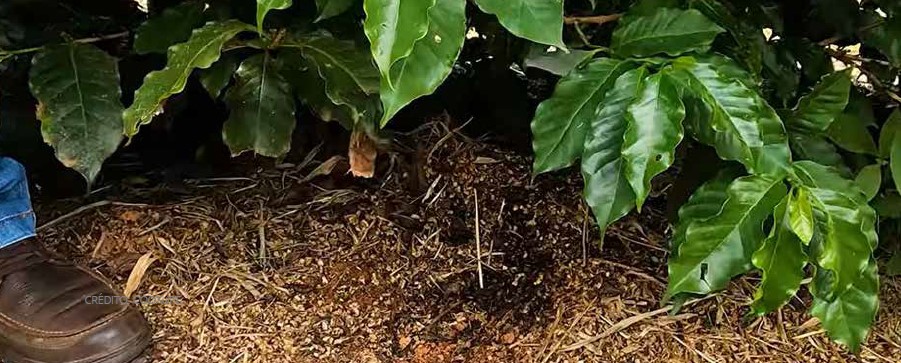Trends show that adopting ESG practices makes coffee growing more competitive
Responsible consumption and the demand for greater transparency regarding the adoption of environmental, social and governance (ESG) criteria throughout the production chain is a trend that is not going away.
Recent research shows that concern about environmental issues has influenced consumer behavior. This is the case with PwC’s Voice of the Consumer Survey,1 which gathered the opinions of more than 20,000 consumers in 31 countries in different regions of the world on a wide range of issues, including sustainability.
1 https://www.pwc.com/gx/en/issues/c-suite-insights/voice-of-the-consumer–survey.html
Issues related to the environmental dimension of sustainability stood out in the responses. Approximately 85% of respondents said they were personally affected by the consequences of climate change, making environmental concerns an influential factor in purchasing decisions for a large portion of this consumer group. Of those surveyed, 46% said they buy more sustainable products to reduce their personal impact on the environment.

Consumers also said they were willing to pay a premium for sustainability, about 10% above the average price of products. The sustainable aspects that have the greatest impact on this purchasing decision are the tangible ones, such as: minimizing waste in the production process and recycling; ecological packaging; the ability of the production method to have a positive impact on nature and water conservation; and in the social dimension, the adoption of ethical practices, such as respect for human rights.
Consumer behavior indicates the importance of adopting sustainable practices in coffee production and the availability of traceability for transparency and recognition of the socio-environmental attributes embedded in the coffee beans.


Good environmental, social and governance practices are consolidated as a competitive factor for access to more demanding markets and qualify the product as a premium that consumers are willing to pay. They also make production systems more resilient to the effects of climate change, reducing losses and the impact of external shocks.
These best practices include those that are part of the broader scope of regenerative agriculture, such as adding more organic matter to the soil, keeping the soil covered, prioritizing biological and organo-mineral inputs, and others.
These practices are climate-friendly, as shown by studies conducted as part of Cecafé’s Carbon Agenda 2, because by adopting them, coffee growing in Minas Gerais retains 10.5 t CO2eq/ha more in the soil and coffee farms than it emits into the atmosphere.
In Espírito Santo, good practices mean that the carbon balance is about three times more negative which is good – in the scenario of changing land use from pasture to Conilon coffee production, sequestering 8.24 tCO2eq/ha/year more than is released into the atmosphere.

2 https://www.cecafe.com.br/site/wp-content/uploads/2022/05/cecafe_relatorio_imaflora_vf.pdf e https://www.cecafe.com.br/
Another differentiator that meets consumer demand is the fact that Brazilian coffee is the only crop in the world that preserves native vegetation through protected areas within rural properties, in the form of legal reserves and permanent conservation, which play a fundamental role in water conservation.
Cecafé’s Carbon Agenda research found that the average amount of carbon stored in the coffee growing areas evaluated in the states of Minas Gerais and Espírito Santo ranges from 183 to 338.6 tons of CO2eq per hectare of coffee grown. An environmental benefit that is embedded in every container of Brazilian coffee exported to the world.
In addition to the environmental aspects, the social dimension of sustainability is of great importance. In Brazil, coffee is a crop that enables small-scale agricultural production, keeping small farmers on the land and generating income and development for communities. This is shown by the Municipal Human Development Index, an indicator that measures life expectancy, education and income.
There is a positive correlation between the MHDI and coffee growing. On average, the larger the coffee area in communities in major coffeeproducing countries, the higher the index.
Many working families in less developed regions of Brazil also benefit from the income generated by coffee. For these workers, the harvest is an opportunity to feed their families for many months.
For this reason, it is essential to educate and raise awareness among farmers and workers about the extensive, complex and rigid regulatory apparatus that exists in Brazil to protect human and labor rights in order to continually improve sustainability.
Therefore, the work of education and combating misinformation coordinated by Cecafé, the Global Coffee Platform and InPacto through the Social Well-Being in Coffee has been very important in promoting decent work and strengthening the role of Brazilian coffee as a vector for human development.

The Informed Farmer3, the Cecafé distance learning platform and the Work and Well- Being in Coffee4 series are the main vehicles for the information produced by the initiative on occupational health and safety, ethical recruitment of coffee pickers and respect for human rights.
An important practice promoted by the Social Well-Being in Coffee Initiative is the improvement of sanitation on coffee farms through the installation of biodigesters. This brings together environmental benefits, such as reducing greenhouse gas emissions and water pollution, and social benefits, such as improving the quality of life, safety and well-being of farm residents and workers.
3 https://www.produtorinformado.com.br/
4 https://www.plataformaglobaldocafe.com.br/biblioteca
The best practices adopted in coffee farming and all the actions taken to continuously improve sustainability show that Brazilian coffees are well positioned to supply the most demanding ESG markets and are in line with global consumers’ desire for socially and environmentally responsible products.
Marcos Matos
CECAFÉ CEO
Silvia Pizzol
CECAFÉ Sustainability Manager




Leave A Comment